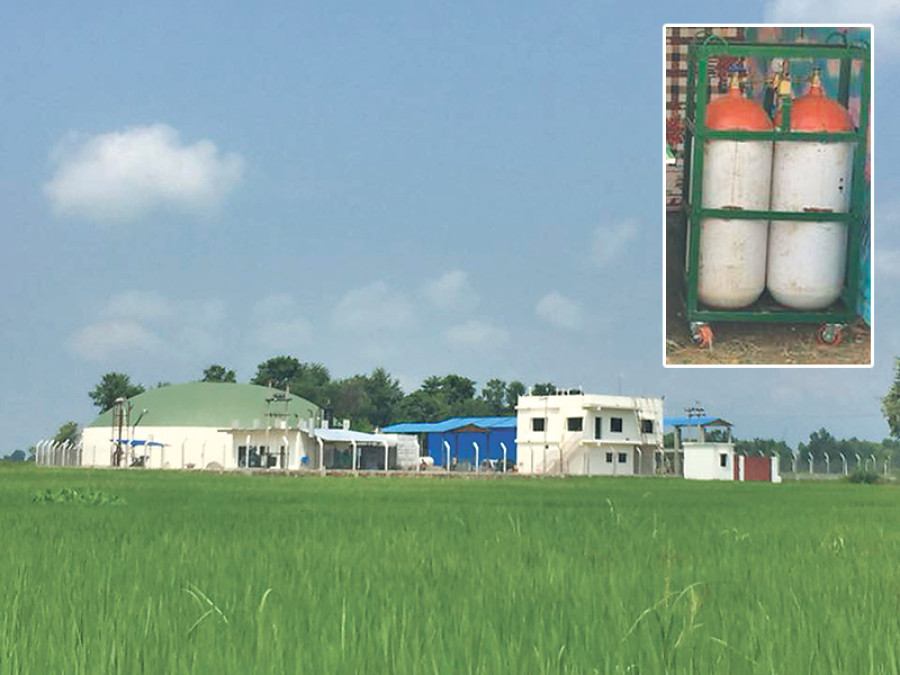Money
Nepal’s first biogas plant starts producing CNG
Envipower Energy and Fertilisers Pvt Ltd, Nepal’s first-ever biogas plant commercially producing bottled compressed natural gas (CNG) has begun operations. The CNG can be used as an alternative to liquefied petroleum gas (LPG)—popularly known as cooking gas.
Envipower Energy and Fertilisers Pvt Ltd, Nepal’s first-ever biogas plant commercially producing bottled compressed natural gas (CNG) has begun operations. The CNG can be used as an alternative to liquefied petroleum gas (LPG)—popularly known as cooking gas.
The biogas will be purified and converted into CNG before being bottled. The biogas is formed when organic materials decay over time. The plant will utilise cow dung, pressmud, poultry litter and biomass. The plant is located at Sukrauli, Nawalparasi.
The company has invested Rs220 million to establish the plant. It has been using German technology to produce 2 tonnes of cooking gas daily.
The plant uses feedstock like cow dung, agricultural waste, waste food and pressmud and converts it to biogas to produce CNG.
“Due to the lack of domestic cooking gas plant, people had to suffer for five months during the trade embargo imposed by India in September 2015,” said Sandeep Kumar Agrawal, managing director of the company. “It is the first biogas plant in Nepal that will produce cooking gas in a commercial way.”
The company has also leased 15 bigas of land near the plant and has planted maize that can be used as a supplementary material for biogas production.
The company said that maize grains are the most suitable material for biogas production and can sustain the plant’s raw material requirements for a long time. The company has been growing maize in a commercial way.
“Managing urban waste is a challenge and this plant will play its part in easing the problem,” said Abhirath Agrawal, director of the company. According to him, the company will be collecting biodegradable waste from landfills in coordination with the municipalities.
The company requires 30-40 tonnes of raw materials. It will also produce 25 tonnes of organic fertiliser daily.




 9.6°C Kathmandu
9.6°C Kathmandu














